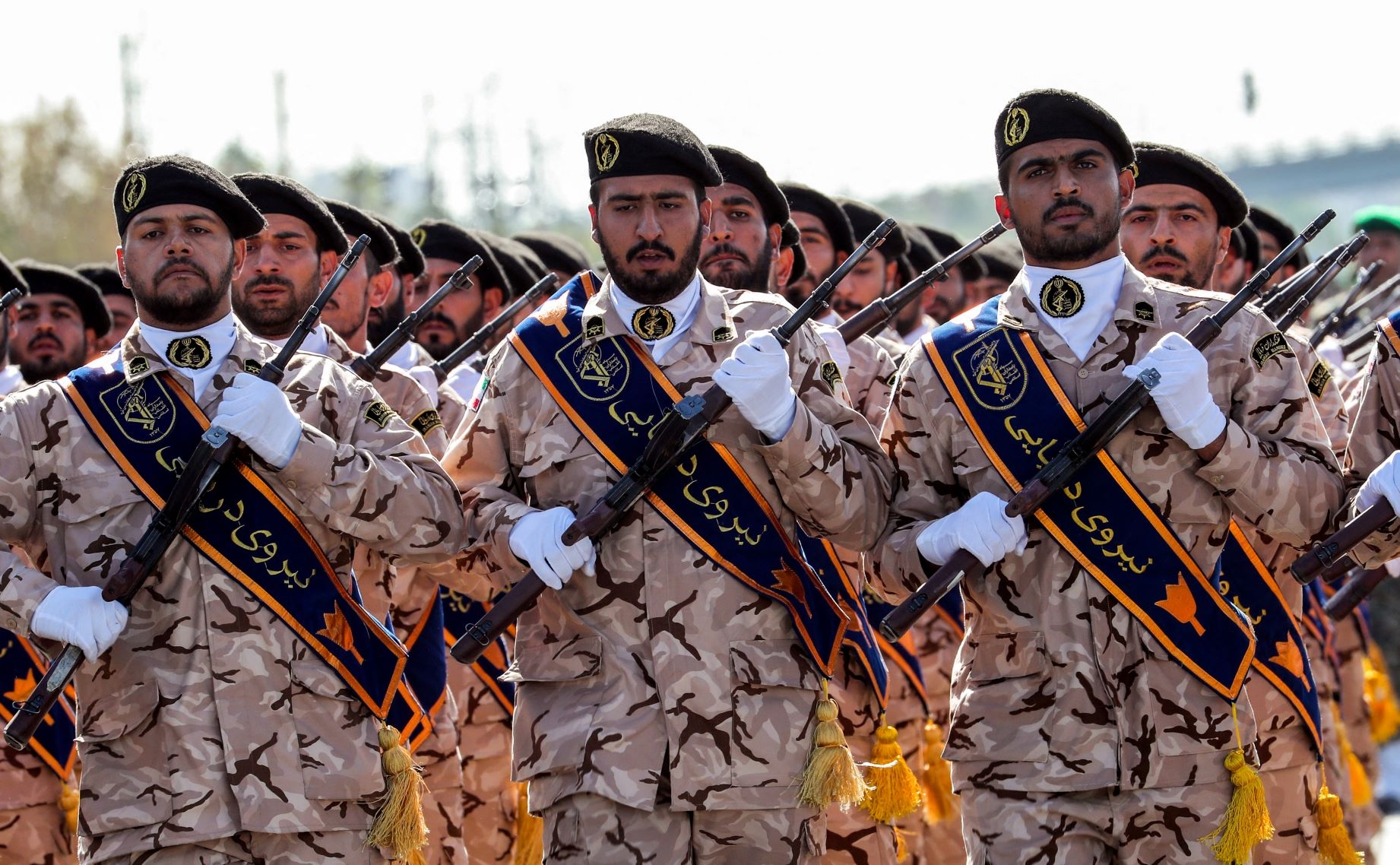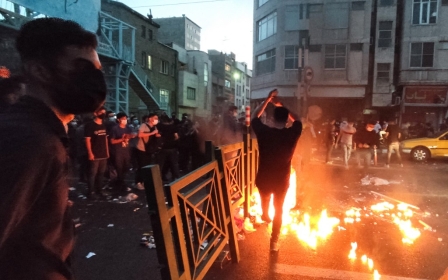Iranian press review: Security chief says aim is to 'create fear' among protesters

Police commander defends use of force
A senior security official in Iran's Islamic Revolutionary Guard Corps (IRGC) has boasted that his units seek to "create fear" among anti-government protesters in the country.
Hassan Karami, commander of the Iranian police's Special Units, made the comment while rejecting claims about his officers operating undercover, Fars news agency reported.
"Our tactic is to move and let rioters see us, this is the philosophy of existence for the Special Units, to create fear in the heart of those causing insecurity," Fars quoted Karami as saying.
"With our vehicles and [military] gear, we make a line and move to make our presence visible and leave a mental impact."
Stay informed with MEE's newsletters
Sign up to get the latest alerts, insights and analysis, starting with Turkey Unpacked
In an exclusive interview with Fars, Karami revealed that police deployed mini quadcopters equipped with cameras and traffic counter devices to arrest citizens who participated in the nationwide demonstrations sparked by the death of Mahsa Amini.
Iranian authorities have not announced the number of ordinary citizens arrested in the latest wave of protests.
Pressure increases on Persian-language media
Iran's government spokesman, Ali Bahadori Jahromi, said that the country's foreign ministry would take measures against Persian language media operating outside Iran, while two more local journalists were arrested inside the country.
"The government decided to respond to the enemy media's activities, and the foreign ministry would do this," Jahromi told reporters on Wednesday.
Iranian officials have accused media in the Persian diaspora of fuelling the anti-government demonstrations across the country.
On Monday, the IRGC commander-in-chief, Major General Hossein Salami, voiced his anger about the Iran International satellite channel's coverage of the protests.
"I warn the Al Saud regime that if they don't control their media, they will suffer the consequences … this is our last warning, be careful!" Salami was quoted as saying to Jahan News.
Saudi Arabia funds Iran International, which is based in London, broadcasting news and political analysis in Persian.
Meanwhile, the government has ramped up pressure on local journalists by arresting Mandana Sadeghi and Farzaneh Yahya Abadi in the southwestern province of Khuzestan.
Block on internet anti-blocking apps
Iranian authorities blocked internet users' access to websites providing virtual private networks (VPN) and anti-blocking applications, making it harder for Iranian citizens to use news sources outside the country, messaging applications and social networking services.
The authorities have increased internet restrictions in an attempt to contain the nationwide demonstrations and, occasionally, cut the internet in various cities. However, this is the first time that even VPNs have stopped functioning in Iran.
On Tuesday, the Aftab-e Yazd daily reported that the government had deployed the same techniques used in China and Russia to impose total control on the internet.
"Almost all VPNs and anti-blocking applications fail to function; has the government developed a new way to reduce internet access?" wrote the daily.
Amir Hossein Zarin, an IT expert, told the daily that the government had targeted the IPs providing VPN to citizens, which was a technique previously used in China and Russia.
He also warned that the few VPNs which function inside the country could potentially be malware distributed by the government.
"We will pay a heavy price for the internet blockage and the malware infecting our cellphones under cover of VPNs," Zarin concluded.
Surprise over Canada's sanctions
New sanctions Canada has imposed on moderate Iranian politicians have raised eyebrows in Iran, as some IRGC members have travelled freely to Canada for holidays in the past.
On 13 October, Canadian foreign minister Melanie Joly announced new sanctions on eight individuals for "systematic violations of human rights" following the deadly suppression of protests in Iran.
Mohammad Javad Zarif, former foreign minister, and Ali Larijani, former parliament speaker, were also on the list of the sanctioned individuals. The two politicians were among the primary political forces behind the 2015 nuclear deal with the West, advocating policies to normalise political relations with western powers.
In February, an independent journalist revealed that Brigadier General Morteza Talaei, one of the founders of Iran's "morality police", had been on vacation in Canada. In response, an Iranian social media user wrote on Twitter: "The Canadian government gives visa to Talaei who was kind of founder of Gasht-e Ershad, but imposes sanctions on Zarif; we can't have hope in foreigners, they look for something different [from what we want]."
The pro-reformist Arman-e Meli daily also criticised the sanctions on Zarif, suggesting "Ottawa is against moderate politicians in Iran.
"Canada passed the new sanctions in a time that Ali Larijani and Mohammad Javad Zarif have no power in Iran's politics to be accused of violating human rights," the daily added.
*Iranian press review is a digest of news reports not independently verified as accurate by Middle East Eye.
Middle East Eye delivers independent and unrivalled coverage and analysis of the Middle East, North Africa and beyond. To learn more about republishing this content and the associated fees, please fill out this form. More about MEE can be found here.





